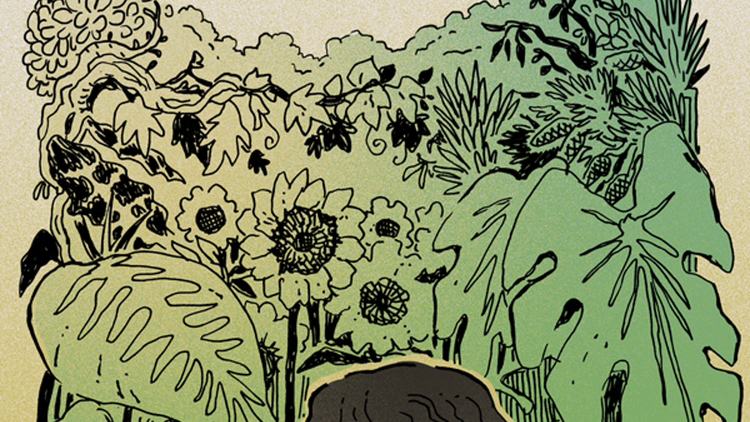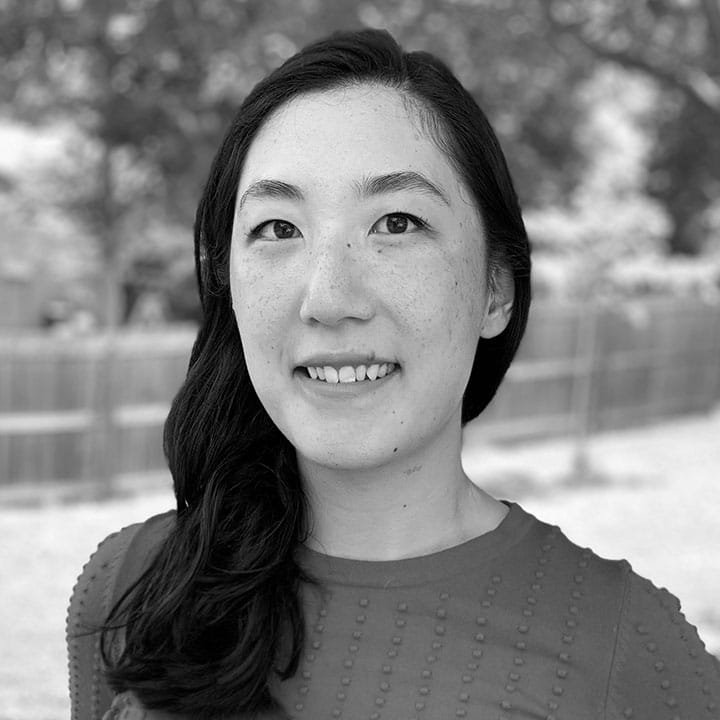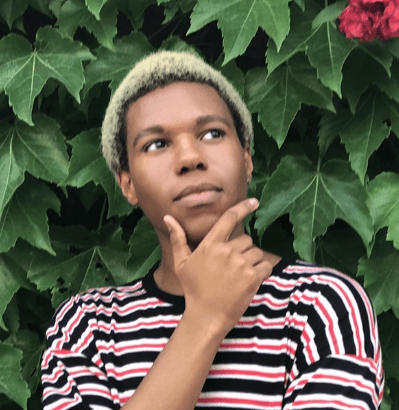The Birth of Jane Lawrence
Caitlin Starling is an award-winning writer of horror-tinged speculative fiction. Her novel The Luminous Dead won the LOHF Best Debut award, and was nominated for both a Locus and a Bram Stoker award. Her other works include Yellow Jessamine and a novella in Vampire: The Masquerade: Walk Among Us. Her nonfiction has appeared in Nightmare and Uncanny. Caitlin also works in narrative design, and has been paid to invent body parts. Find her work at caitlinstarling.com and follow her at @see_starling on Twitter.
Her most recent novel The Death of Jane Lawrence is now available wherever you get your books.
Jane Lawrence is autistic.
I didn’t plan it that way. I didn’t create her with the intent to splash my own neurodivergence all over the page. It happened when I wasn’t looking. It happened when Jane expressed her insecurities, when she considered the problems facing her and planned solutions, when she viewed herself against the backdrop of other people.
Jane was different. Jane was like me. Jane was a funhouse reflection of me that started from the assumption that, since she was one of my characters, I would love her always.
It took some getting used to.
I was diagnosed a year or two before I ever conceived of her. It was the proverbial whimper and bang, the explanation slotting into place like it had always been there even as it made every bit of my life suddenly make sense. I’m autistic. I get overstimulated easily, I have trouble understanding when something is or isn’t a joke, I just don’t get lying. I have meltdowns. I don’t always understand my own feelings, unless I can pull them out into a narrative that sits somewhere to the left of me. All of these things were true before my doctor put a name to it, and have been true ever since.
(I still fought the label, at first. The fact that it fit felt like proof that there was something wrong with me, and had been for the last twenty-odd years. It felt like something I needed to try to fix, but it couldn’t be fixed. It wasn’t going away.
It took a while before “something wrong with me” transformed into “something different about me”, and the label became freeing, instead. There was nothing to be fixed, because there was nothing broken to begin with.)
And then, a few years later, there was Jane. Jane is pragmatic and prickly and so full of love but doesn’t know what to do with any of it. Socializing is hard; brokering a marriage with a man she’s never met is shockingly easy, except for when it goes off-script. Jane crept out of me, fully formed, and waited as I got it wrong on the first (six) drafts, waited patiently until I was ready to say, oh, yes, this is how she’d respond in this moment, because it’s how I’d respond, or close enough.
Sometimes, this was comforting. Jane handles an impromptu wedding parade about as well as I would, and her new husband is right there with her, overwhelmed by the noise and the attention and the change in plans as their carriage heads not for his office, but his forboding family home outside of town. Other times, it was painful: Jane’s (apparent) coldness in the face of others’ pain, the way she interprets the world and takes steps to control it and protect her place in it. Those actions struck my editor as horrifying, even when I meant them to be relatable. But always, they were true. They were true, they were true, they were true.
Jane Lawrence is autistic, and she is not me, but she could be.
And I love her.
Have you ever written a character, and they just glow? You think of them, and they are fully-formed, something a little outside of you, waiting and gazing back at you, and you get the tiniest bit obsessed. It doesn’t happen every time, or even most of the time, but when it does- well, buddy, you’ve got it bad.
Sometimes, I wonder if I should have put it in bold type on the page: Jane Lawrence is autistic. It’s important to give names to things, after all. Important to see those names, unambiguous, where they apply. Maybe it’s fear that kept me from doing it. I like to think, though, that there’s a special moment when somebody else whose brain works like mine recognizes themselves in something I’ve written. An unexpected moment of oh, hello. The book never says Jane is autistic, except for where it does, over and over again, in the nuance of lived experience. In how she reacts to trauma, in how she understands herself, in her fears and her confidences.
She’s missing some of the generally accepted “tells”. Her world doesn’t overstimulate her much, except for one or two exceptions. I’m not sure I ever called attention to her relationship with eye contact. Her stimming is limited, and perhaps more intellectual than physical. Is that going to keep some people from recognizing her? I hope not. I like to think that neurodivergence isn’t just a handy little checklist of traits, but something qualitative.
(And if I ever get the sequel I have planned and that dangles on the horizon, past the whisper of “good sales numbers,” like a particularly tasty treat, some of this will change. Moving from a rural town to the equivalent of London at the end of the 1800s is going to stress Jane’s mind in new and exciting ways. There’s a lot to overwhelm. There are a lot of new coping skills to practice.)
(If I ever get the sequel, it’s all over for you guys.)
(I really want that sequel. I don’t want to give up Jane, not yet.)
From early reviews, it became clear that the majority of people also love Jane. It’s not just me. I did - do - worry about that, constantly. It’s a bit like putting my own brain up for judgment. Is she too cruel? Too emotionally closed off? Too stumbling? Or is she not courageous enough, not relatable enough, not good enough? (Am I not good enough?) It turns out she may be cruel, or emotionally closed off, but that’s acceptable. That’s engaging. Not just to people whose brains work kind of like mine, but to a wide spread of readers. Sometimes, when you bare your soul on the page, the world surprises you.
Now The Death of Jane Lawrence is out in the world. Jane is yours as much as she is mine. And she is not me, but she is like me, and I can see her glowing, inviolate and whole and apart from me.
And it’s good.
Practical, unassuming Jane Shoringfield has done the calculations, and decided that the most secure path forward is this: a husband, in a marriage of convenience, who will allow her to remain independent and occupied with meaningful work. Her first choice, the dashing but reclusive doctor Augustine Lawrence, agrees to her proposal with only one condition: that she must never visit Lindridge Hall, his crumbling family manor outside of town.
Yet on their wedding night, an accident strands her at his door in a pitch-black rainstorm, and she finds him changed. Gone is the bold, courageous surgeon, and in his place is a terrified, paranoid man--one who cannot tell reality from nightmare, and fears Jane is an apparition, come to haunt him. By morning, Augustine is himself again, but Jane knows something is deeply wrong at Lindridge Hall, and with the man she has so hastily bound her safety to.
Add The Death of Jane Lawrence to your tbr here. Order it from your local independent bookseller, or order it via Bookshop.org to support independent booksellers throughout the US and the UK. For international shipping, you can try Barnes & Noble. If you prefer audiobooks, here’s a Libro.fm link. You can also request The Death of Jane Lawrence from your local library — here’s how to get in touch with them. And if you need to order from the Bad River Website, here’s a link that will leverage your order to help get clean water to people who need it.
If you haven’t already, I hope you’ll consider subscribing to this newsletter. The subscriber community is a wonderful and supportive one, and we’re spending 2021 finding new ways to stay connected and share experiences.
In the meantime, care for yourself and the people around you. Believe that the world can be better than it is now. Never give up.
—Gailey


![Guest Host [sarah] Cavar](/content/images/size/w750/2025/03/COVER---Failure-to-Comply.jpg)



Member discussion